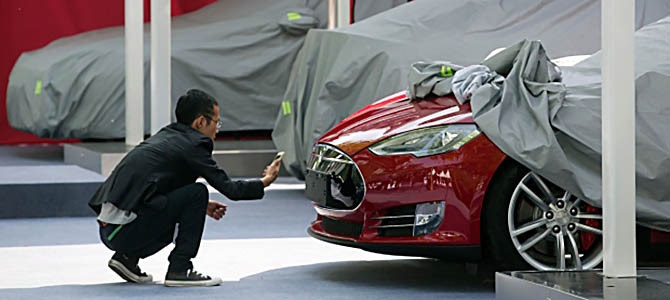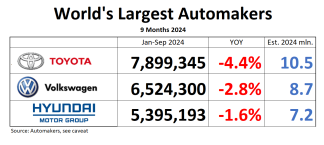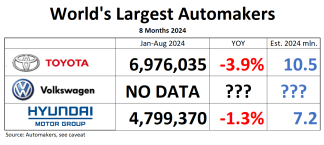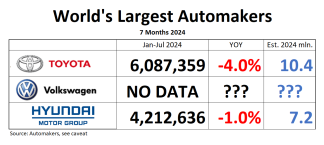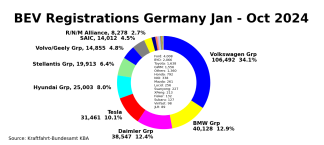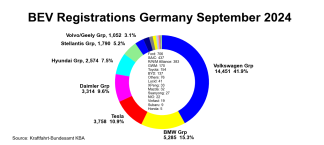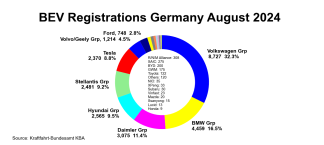The Tesla bears are on the march, tearing away at the startup EV maker’s still-sky-high valuation, but not because low oil prices are killing off EVs. Quite the opposite, in fact. As I explained in last week’s Bloomberg View column, falling oil prices will not kill off alt-energy drivetrains for a wide number of reasons, most importantly because it’s one of the few ways to stand out in a sea of commodified internal-combustion engine-powered cars. Though automakers could easily plan a low-efficiency product cycle in response to low oil prices, they are keeping the technological arms race going. And that is Tesla’s real challenge: not a decline in EV interest, but strong competition from established players with more experience building vehicles at scale.
Ehich brings us to this week’s column on Tesla, which argues that the industry is going to actually going to try to compete with the startup as it moves into lower price points and bigger volumes. Automakers are frustrated with Tesla’s hogging of the EV limelight, and know that they have a chance to humble the arrogant startup as it attempts to steal real sales. They know that Tesla can only do so much, and that between the delayed Model X, the new Model III, the Gigafactory, next-generation battery technology and the much-hyped Autopilot Tesla simply does not have the bandwidth to do everything it wants –and needs– to grow and thrive. Hence, you are seeing established players looking to give the next wave of Tesla products some stiff competition while trying to leapfrog them on next-gen battery technology.
Tesla’s response to this competition needs to be increased pragmatism and focus. Avoid the regulatory and technological tar pit of autonomous technology, get the Model X to market, develop the next generation of batteries and make Model III execution every bit as good as Model S’s. “Pivoting” the firm towards stationary storage may help fill up planned Gigafactory capacity, but it also runs Tesla into the teeth of a whole new market rife with well-funded startups, and reminds EV observers of past “pivots” from failing EVs to stationary batteries, most notoriously when Coda Autos tried to save itself as Coda Energy. If Tesla gets a battery deal with the military, as some have speculated, Tesla may well build scale for its batteries, but the odds of Tesla’s stationary batteries making the splash with consumers that its Model S did are not good. Tesla needs to remain totally focused on building its luxury brand in order to live up to its most promising potential: becoming the Silicon Valley’s answer to Jaguar or Maserati.
